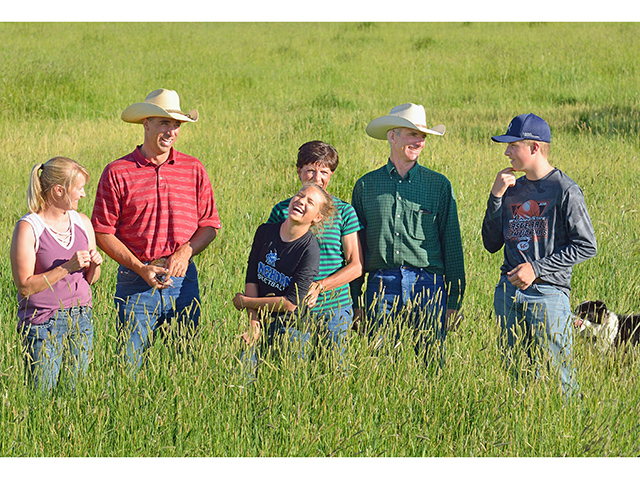Family Business Matters
A Pandemic Blessing: Margin Redefined
In business, the concept of margin implies some remaining amount of revenue or profit after accounting for expenses and is reflected in terms like "gross margin" or "profit margin." But the word "margin" is also used in another way, according to a book titled "Margin," by Dr. Richard Swenson. He defines it as "the space between our load and our limits." In other words, how do we take time, in the midst of our busy lives, to invest in long-term activities that improve our relationships, nourish our spirits and add a noneconomic "margin" to our lives?
Today's family farm or ranch is a hub of urgent activity focused on the financial margins. Family members wear multiple hats while supervising other people, managing millions of dollars in assets and reacting on short notice to unexpected market swings or weather events. The attention to operational and financial health -- the load -- often comes at the expense of personal and family care.
When we asked people about some of the unexpected benefits of the COVID pandemic, they told us one of the silver linings was a form of margin: the chance to work with their school-aged kids (or grandkids) in the business. Because of school cancellations in the spring, young people had a chance to help with planting or livestock management, continuing into summer work. The pandemic, while not creating any less workload, offered a chance, via family involvement, to incorporate life margins with business margins. Consider some of the following effects this might have.
P[L1] D[0x0] M[300x250] OOP[F] ADUNIT[] T[]
BETTER RELATIONSHIPS
A sad fact of our modern life is the absence of parents from their kids' lives, especially in the teenage years. I often hear adults describe how their parents were not around or did not participate in their lives when they were kids. I know firsthand that parents don't generally want to be absent, but the demands of owning a small business, especially in agriculture, often take time away from school events, vacations or other meaningful interactions. This pandemic gave many families a chance to experience both work and more leisurely activities together, thereby building relationships with one another.
RESPECT FOR GENERATIONAL DIFFERENCES
One of the results of current education and sports models is that farm and ranch kids are at school or on the court or field for most of the daylight hours. Couple that absence with differences in communication styles and work preferences, and the gaps between generations grow larger. However, with remote education and limited athletics, family members have had a chance to better understand and appreciate the approach each generation brings to its work. Perhaps in the future, we'll see more compliments and fewer complaints between generations in the workforce.
MORE YOUNG PEOPLE IN AGRICULTURE
As young people have worked longer hours in the business, they've had a chance to see the range of technical and business skills necessary to lead a modern farming or ranching enterprise. We won't know immediately, of course, but the time spent and insights gathered on the farm this past spring and summer may lead a few more people to consider returning to the business and, thus, continue the legacy of the family enterprise.
We all know that creating more time, or in noneconomic margin terms, increasing "the limit," is impossible. But we can redesign how our time is spent. The COVID pandemic did just that for most families around the world. For farm and ranch families, the blessing of more family time, even while working, may pay unexpected dividends for years to come.
Write Lance Woodbury at Family Business Matters, 2204 Lakeshore Dr., Suite 415, Birmingham, AL 35209, or email lance.woodbury@kcoe.com.
(c) Copyright 2020 DTN, LLC. All rights reserved.




